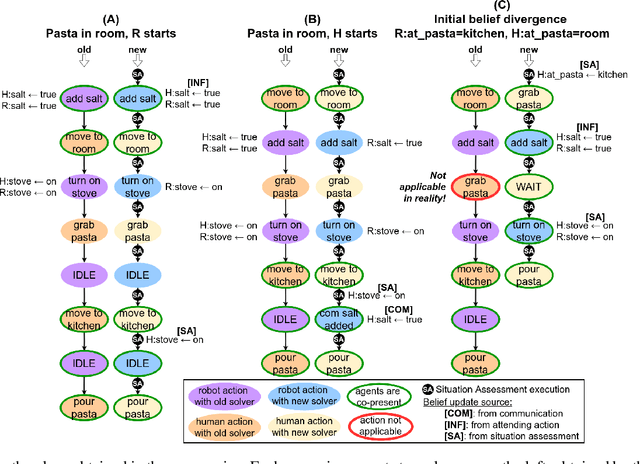Robust Planning for Human-Robot Joint Tasks with Explicit Reasoning on Human Mental State
Paper and Code
Oct 17, 2022


We consider the human-aware task planning problem where a human-robot team is given a shared task with a known objective to achieve. Recent approaches tackle it by modeling it as a team of independent, rational agents, where the robot plans for both agents' (shared) tasks. However, the robot knows that humans cannot be administered like artificial agents, so it emulates and predicts the human's decisions, actions, and reactions. Based on earlier approaches, we describe a novel approach to solve such problems, which models and uses execution-time observability conventions. Abstractly, this modeling is based on situation assessment, which helps our approach capture the evolution of individual agents' beliefs and anticipate belief divergences that arise in practice. It decides if and when belief alignment is needed and achieves it with communication. These changes improve the solver's performance: (a) communication is effectively used, and (b) robust for more realistic and challenging problems.
 Add to Chrome
Add to Chrome Add to Firefox
Add to Firefox Add to Edge
Add to Edge